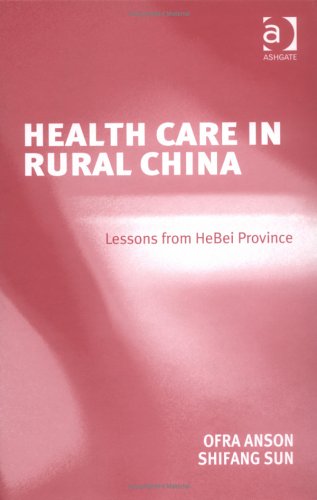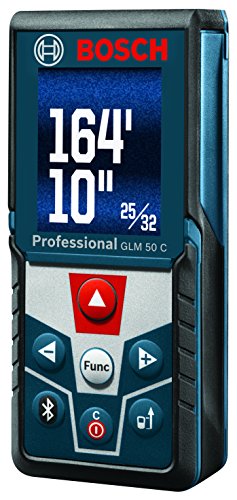Expert choice for rural healthcare
When you want to find rural healthcare, you may need to consider between many choices. Finding the best rural healthcare is not an easy task. In this post, we create a very short list about top 8 the best rural healthcare for you. You can check detail product features, product specifications and also our voting for each product. Let’s start with following top 8 rural healthcare:
1. What Rural Health Leaders are Saying
Description
What Rural Health Leaders are Saying is a summary of episodes from the inaugural year of the Rural Health Leadership Radio podcast. What Rural Health Leaders are Saying is filled with ideas and best practices from exceptional rural health leaders for rural health leaders. Since 2010, 82 rural hospitals have closed. Roughly, 1 in 3 rural hospitals have been identified as at risk. Around 40% of all rural hospitals operate at a loss. If there was ever a need for strong leadership in rural health, that time is now. The Rural Health Leadership Radio podcast is a free service created to assist rural health leaders share information about what is working in rural healthcare, what is not working, lessons learned, definitions of leadership and other topics of interest. Each week a new episode is released featuring a variety of rural health leaders making a difference. Rural Health Leadership Radio Inc., is a non-profit organization. Our mission is to improve the world by engaging rural health leaders in conversations, learning and research. Your purchase of this book helps support that mission.2. Ethical Issues in Rural Health Care
Description
This volume initiates a much-needed conversation about the ethical and policy concerns facing health care providers in the rural United States. Although 21 percent of the population lives in rural areas, only 11 percent of physicians practice there. What challenges do health care workers face in remote locations? What are the differences between rural and urban health care practices? What particular ethical issues arise in treating residents of small communities? Craig M. Klugman and Pamela M. Dalinis gather philosophers, lawyers, physicians, nurses, and researchers to discuss these and other questions, offering a multidisciplinary overview of rural health care in the United States.
Rural practitioners often practice within small, tight-knit communities, socializing with their patients outside the examination room. The residents are more likely to have limited finances and to lack health insurance. Physicians may have insufficient resources to treat their patients, who often have to travel great distances to see a doctor.
The first part of the book analyzes the differences between rural and urban cultures and discusses the difficulties in treating patients in rural settings. The second part features the personal narratives of rural health care providers, who share their experiences and insights. The last part introduces unique ethical challenges facing rural health care providers and proposes innovative solutions to those problems.
This volume is a useful resource for bioethicists, members of rural bioethics committees and networks, policy makers, teachers of health care providers, and rural practitioners themselves.
3. Hope in the Face of Challenge: Innovations in Rural Health Care
Feature
Used Book in Good ConditionDescription
Book by4. Rural vs. Urban Ambulatory Health Care: A Systematic Review
Description
Approximately 3 million veterans, slightly more than one-third of all veterans enrolled in the Department of Veterans Affairs (VA) health care system, live in rural areas. This pattern is likely to continue, as a comparable proportion of Operation Enduring Freedom/Operation Iraqi Freedom (OEF/OIF) veterans are from rural areas. The Rural Veterans Care Act of 2006 was signed into law to improve care for rural veterans. Ensuring that the health care needs of rural veterans are met has become a top priority for VA, resulting in a considerable expansion of community based outpatient clinics (CBOCs), inclusion of rural health/access as a research priority, and creation of the VA Office of Rural Health (ORH) in 2006. Although there have been reports comparing health quality of life (both physical and mental) for rural and urban veterans, it remains unclear whether the observed lower health quality of life in rural veterans is due to disparities in health care, differences in disease prevalence, or other population differences. This systematic review examines the evidence regarding potential disparities between rural and urban areas in health care provision and delivery, and how differences in health care may contribute to disparities in health outcomes. Differences in rural-urban prevalence rates of diseases and other health conditions are beyond the scope of this review. Because veterans who use VA health care have been found to use more non-VA health care overall, we expanded the focus of this review to include comparisons of rural vs. urban health care in non-VA health systems. Our first goal was to determine if a health care disparity exists across the urban-rural spectrum. For a disparity to exist, it would have to be demonstrated that health care outcomes of patients in rural areas differ from those of patients treated in urban areas for similar conditions. Because differences in health care process or delivery do not necessarily lead to disparities, we looked for evidence associating differences with poorer health outcomes. For the purposes of this review we conceptualized rural-urban disparities as differences in health care quality or availability. A second goal of the review was to identify areas for intervention should any disparities be found. In order to develop a meaningful intervention, specific information regarding differences in the structure of health care and the way it is administered (i.e., the process) would be critical. Since differences in health outcomes can occur for reasons other than differences in the health care systems themselves (e.g., accessibility), our third goal was to examine what, if any, nonhealth care factors (e.g., travel distance to a clinic) affected health outcomes. Because veterans who use VA health care actually use more non-VA health care overall,9 we expanded the focus of this review to include comparisons of rural vs. urban health care in non-VA health systems The key questions were: Key Question #1. Do adults with health care needs who live in rural areas have different intermediate (e.g., hemoglobin A1c [HbA1c], Blood pressure, etc.) or final health outcomes (i.e., mortality, morbidity, quality of life [QOL]) than those living in urban areas? Key Question #2. Is the structure (e.g., types of available providers) or the process (e.g., likelihood of referral) of health care different for adults with health care needs who live in urban vs. rural environments? Key Question #3. If there are differences in the structure or the process of health care in rural vs. urban environments, do those differences contribute to variation in overall or intermediate health outcomes for adults with health care needs? Key Question #4. If there are differences in intermediate or final health outcomes for adult patients with health care needs, what other systems factors moderate those differences (e.g., availability of specialists, type of treatment needed, travel distance)?5. Service Above Self: Fifty Years of Pioneering in Rural Healthcare with the Lutheran Hospitals and Homes Society
Description
Service Above Self combines the history of the first fifty years of the Lutheran Hospitals and Homes Society (LHHS) with events that took place in rural health and nursing home care from 1938 through 1987. The Society is unique in healthcare because it pioneered the system s approach for the industry and became one of the giants in the business. LHHS is an offshoot of the Lutheran Evangelical Good Samaritan Society which was founded in 1922 in a small North Dakota farming community. Many of the basic concepts came from the Bethel movement in Germany. The changing structure of the sparsely-populated, natural resource-based economies of farming, ranching, energy, and forestry of the rural west made it difficult for the small communities to support proper health and geriatric care facilities. The old time doctors hospitals or the small community- or county-owned hospitals, could no longer meet the demands of a shrinking but increasingly sophisticated populace. This provided a setting for these not-for-profit, privately-operated systems which were alert to the opportunity and pioneered a new approach for the healthcare industry.6. The New Cooperative Medical Scheme in China: A Qualitative Study to Explore Opinions About the Impact of the NCMS on Accessibility of Rural Healthcare in Fujian province / China
Description
This book is a report on a study which aimed to explore different opinions about the impact of the New Cooperative Medical Scheme (NCMS) on accessibility of healthcare for the rural population in two pilot counties of Fujian province in China. The study was a mixed method study based on key informant interviews, semi-structured interviews, focus group discussions, the participatory matrix ranking method as well as hospital utilisation statistics. The NCMS, which was implemented in China in 2003, is the most recent form of a rural health insurance scheme. It is voluntary and aims to protect rural people from poverty due to illness by reducing out of pocket payments and decreasing catastrophic expenditures. Furthermore, it intends to establish a well managed, well functioning and easily accessible health care system for rural people. The book shows results regarding the structure of the NCMS, the variety of personal circumstances of rural residents, "physical" accessibility, "economical" accessibility, changes in hospital utilisation between 2000 and 2006, and the wishes and the willingness of the rural population to improve the system for the future.7. Handbook for Rural Health Care Ethics: A Practical Guide for Professionals
Feature
Used Book in Good ConditionDescription
The rural community presents not only distinct health care delivery challenges but also ethical problems for clinicians and administrators of small, rural health care facilities. Health care delivered in a rural contextin closely knit, tightly interdependent small community settingsposes unique ethical considerations for clinical practitioners. For example, a provider in a resource-poor rural setting may be faced with treating a family member, friend, business associate, or neighbor, since the role separation between clinician and patient that predominates in the urban setting is less likely to occur in a small town. Because of the unique rural context, the solutions that health care providers develop to resolve complex ethics dilemmas may differ from solutions reached in urban areas.The Handbook for Rural Health Care Ethics is designed to be a useful resource for clinicians and administrators in rural settings. It draws on the available research and real-life examples to paint a picture of challenging, yet all-too-familiar ethics conflicts while offering strategies for a proactive, preventive approach to ethical issues.
8. Healthcare In Rural China: Lessons From HeBei Province











Recent Comments